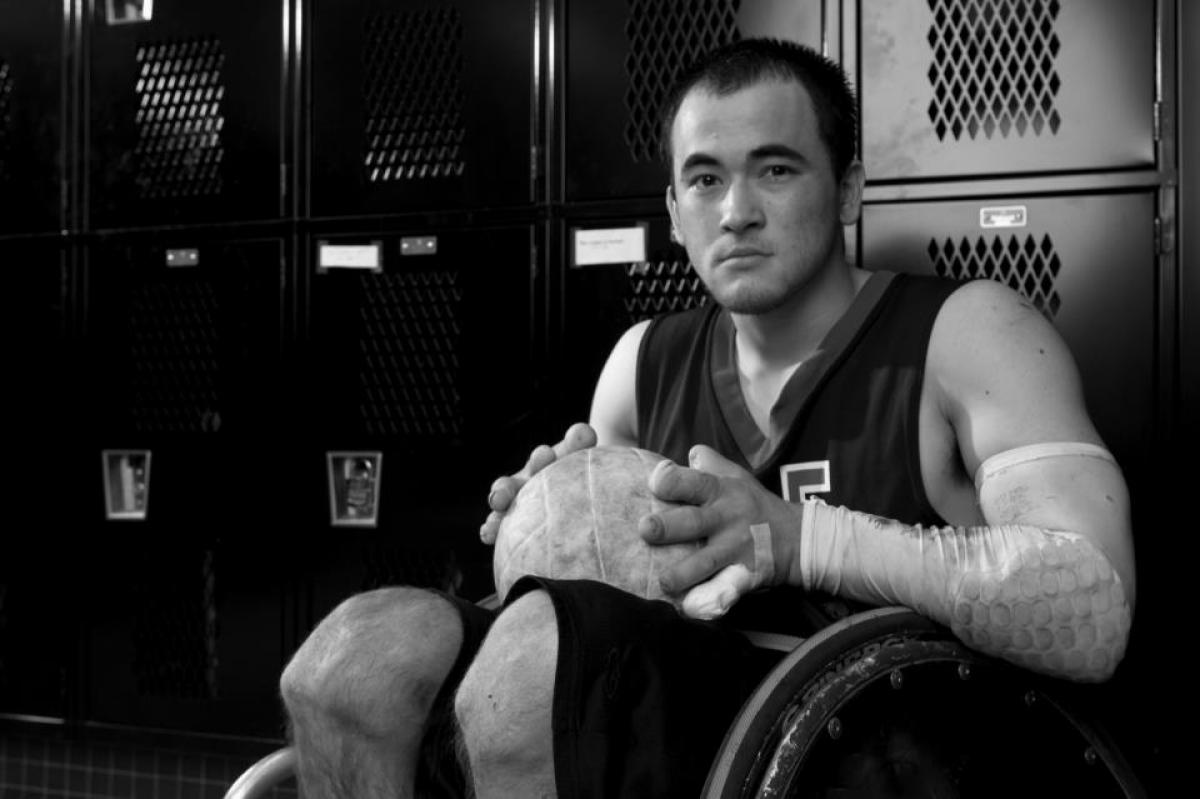Chuck Aoki: Wheelchair is part of my identity
The wheelchair rugby player shares why he is conflicted when being told that people ‘forget he uses a wheelchair.’ 26 Jan 2016
Chuck Aoki is a member of the USA's wheelchair rugby team and has been named One to Watch by the IPC in the lead-up to the Rio 2016 Paralympic Games.
I have been thinking a lot about my last blog, where I wrote how having a disability is still viewed negatively. There is a line in there that I want to explore more. Toward the end, I explain how my mom once told me after watching my team and me play that she “forgets we use wheelchairs.”
I want to dig more into this not because I want to over analyse something my mom told me, like most young adults my age do, but instead because she is not the first person to tell me this, and probably will not be the last.
I will begin with my experiences with this idea of my wheelchair being “forgotten.” The earliest remembrance I have of this took place sometime in middle school, when a classmate invited me to his house, and upon arriving there, remarked something to the extent of, “Oh that's right. My house has stairs. I sort of forgot you're in a wheelchair. Sorry!” His parents helped me in and out of the house, however, and it really did not end up being a big deal at all. But that phrase stuck with me. “[I] forgot you're in a wheelchair.”
It did not happen again until I began doing public speaking and competing both nationally and internationally. I have had people approach me after I have spoken to them, and essentially say, “Wow, you don't seem like you're in a wheelchair!” Another one is, “I forget quickly that Chuck uses a wheelchair.” After games, I have had people echo what my mom said, that the speed and athleticism of the game takes over, and they “forget” that we are using wheelchairs. All in all, I'd say this has occurred enough over the last five to six years that I have lost track of how many times it has happened.
Now how do I feel about it?
I am genuinely conflicted. On the one hand, is not this what anyone who with a disability wants? People have forgotten about my disability and focused solely on who I am, and what I can do.
But there is another way to look at this as well. Part of my identity is being essentially forgotten by able-bodied people. It is cast aside, as though since I have achieved something great, what got me there no longer matters.
And not to mention the fact that it has taken me becoming a Paralympian for people to forget that I have a disability, and to focus on my abilities. A tiny percentage of people with disabilities become Paralympians. For that to be the standard to which a person with a disability must achieve to have their disability “forgotten” is kind of ridiculous.
I do not fault people without disabilities for this reaction. If you have never interacted with a person with a disability before, or your interactions have been limited to more stereotypical situations, the drastic contrast of a Paralympic sport can be almost be a shock to the senses. And that is fine. But the change of perception cannot stop there. People with disabilities are both just as extraordinary and ordinary as people without them. My mom, and people like her who interact often with people with disabilities, have learned this. I look forward to the day the rest of the world catches up.
A live chat with Chuck Aoki was held via Facebook and Twitter on Monday 25 January, using the hashtag #AskChuck. Check back at @paralympic to see what the most popular questions were asked to the Paralympian.

 Facebook
Facebook
 Instagram
Instagram
 Twitter
Twitter
 Youtube
Youtube
 TikTok
TikTok
 Newsletter Subscribe
Newsletter Subscribe
